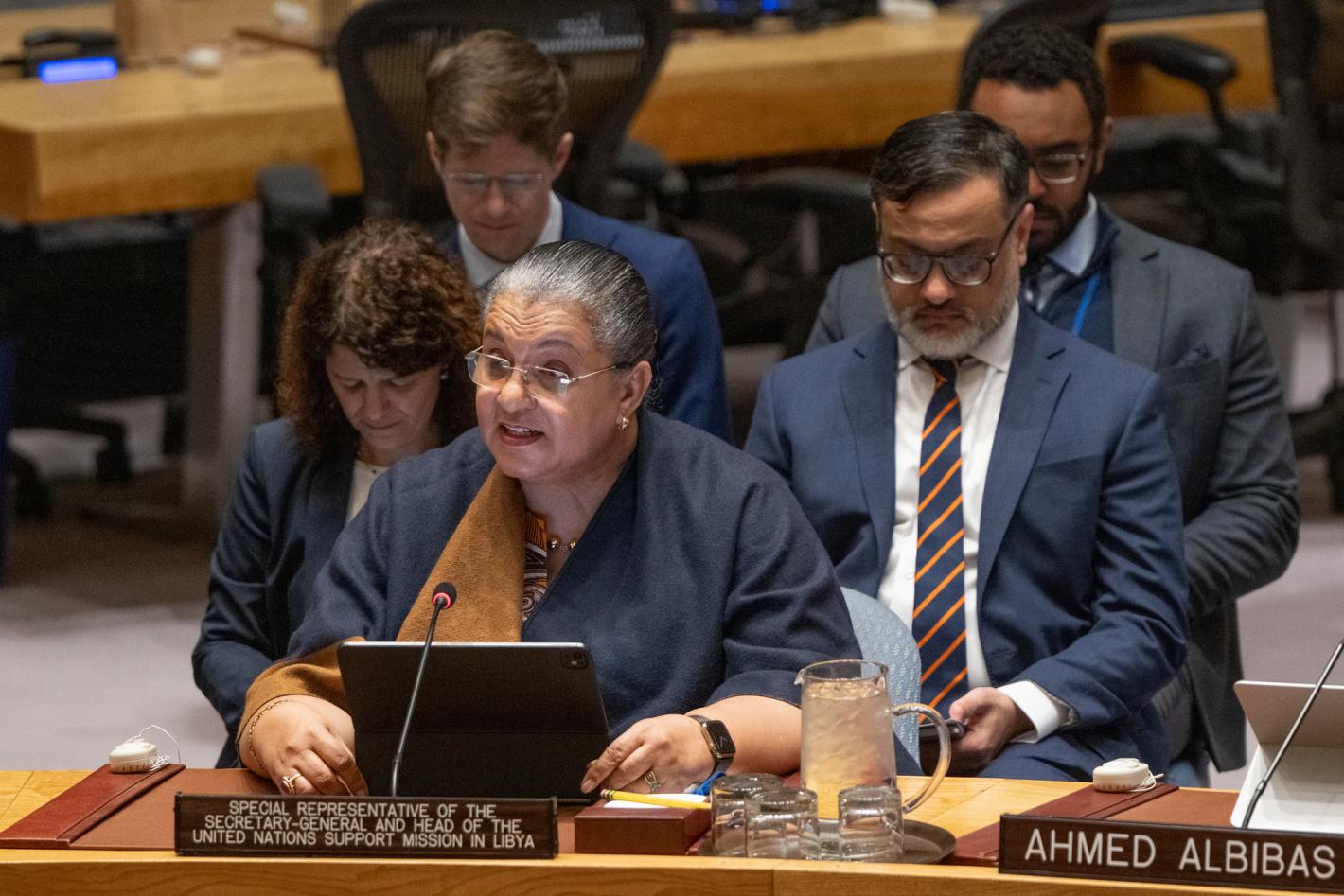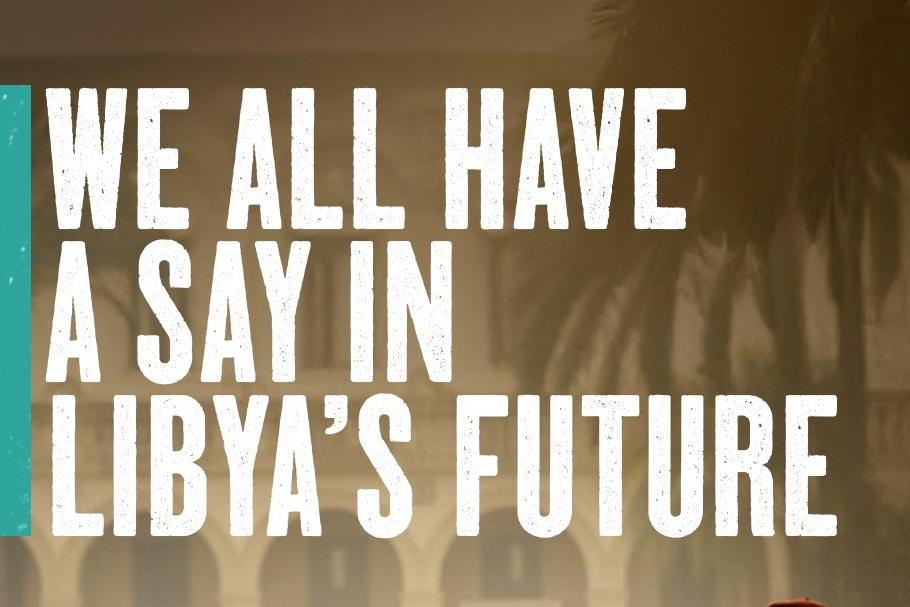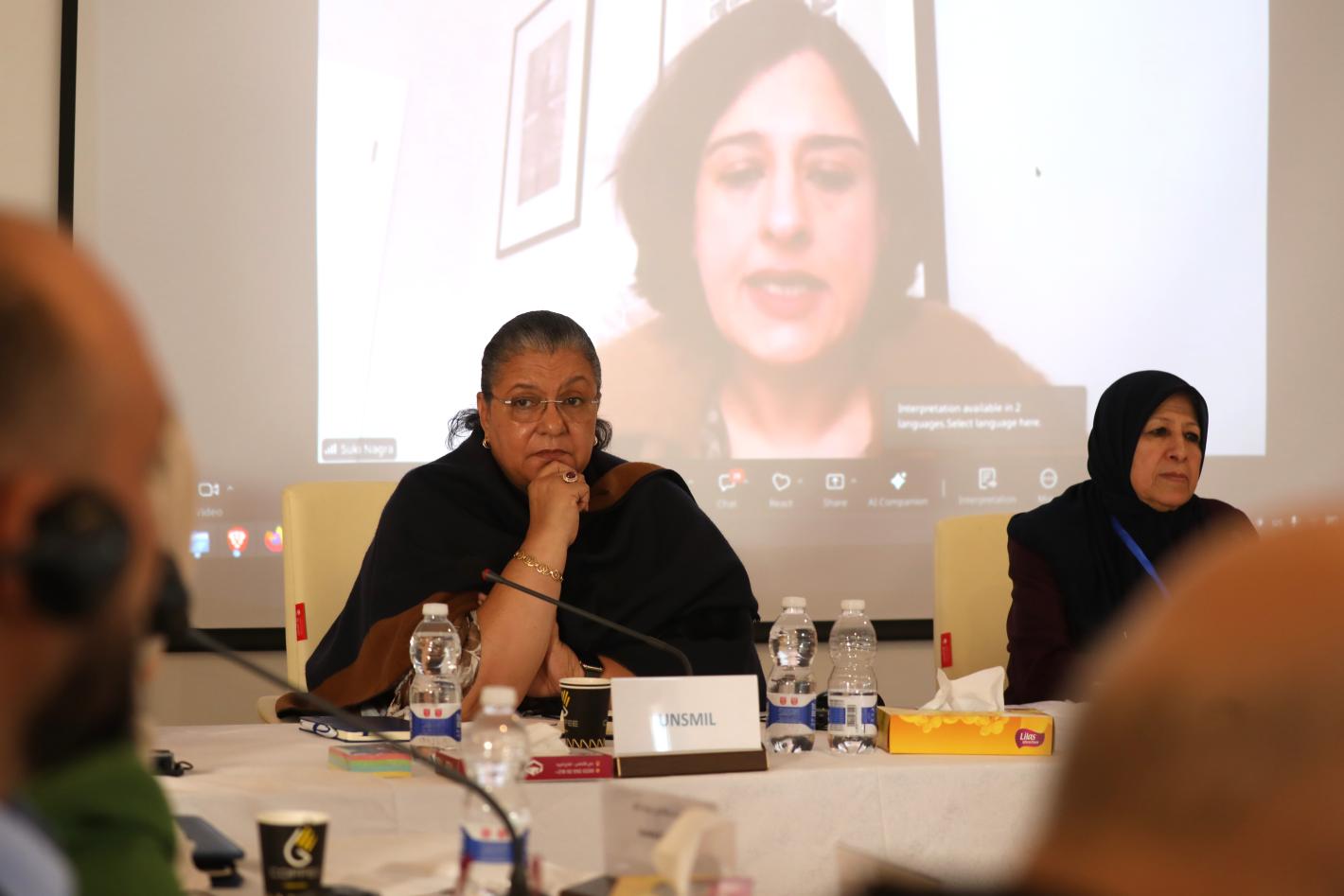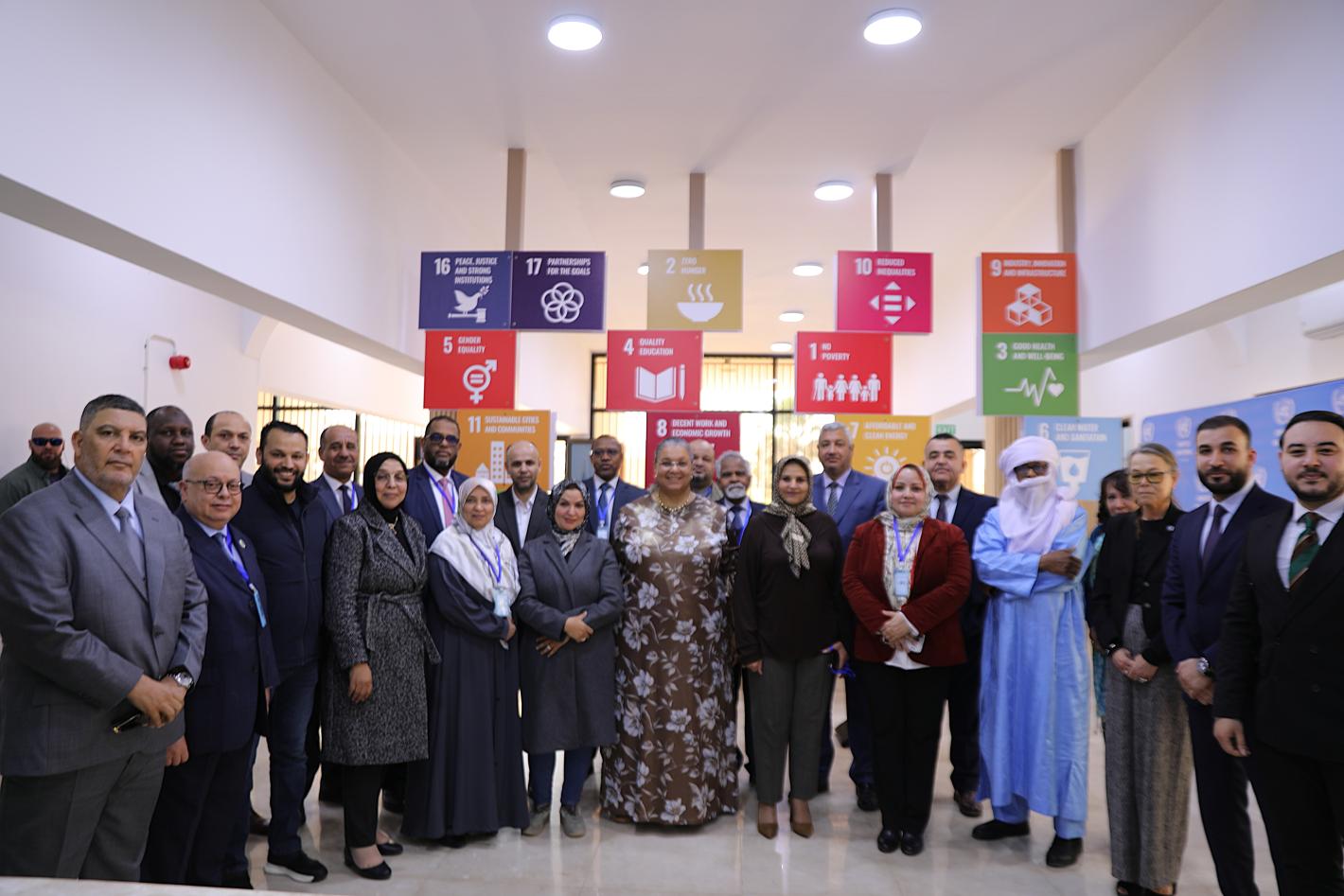Author Abel Kavanagh describes an innovative programme taking place at the UN Support Mission in Libya (UNSMIL): "Virtual reality would allow us to transport people to the heart of our activities on the ground, immerse them in the reality of migrants, and develop empathy for those involved in conflict."
I have to admit, when I put on a virtual reality (VR) viewer for the first time, I experienced a sensation of vertigo.
So, when Ahmed, a Libyan colleague of mine who is also the webmaster of UNSMIL, told me that he had just received his VR viewer, I told him about my experience. But after trying his viewer - which had the latest VR technology - I was now able to fully appreciate the virtual reality universe.
For security reasons we are based in Tunis and only have sporadic access to Libya, so I thought it would be interesting to use this tool to expose people to the reality of every day life in Libya. It would allow us to transport people to the heart of our activities on the ground, immerse them in the reality of migrants and develop empathy for those involved in conflict – all of which would strengthen our outreach with the general public.
 | 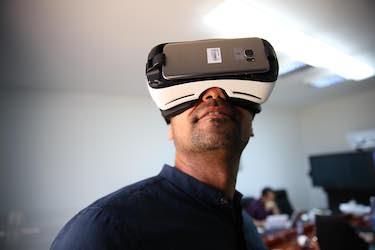 |
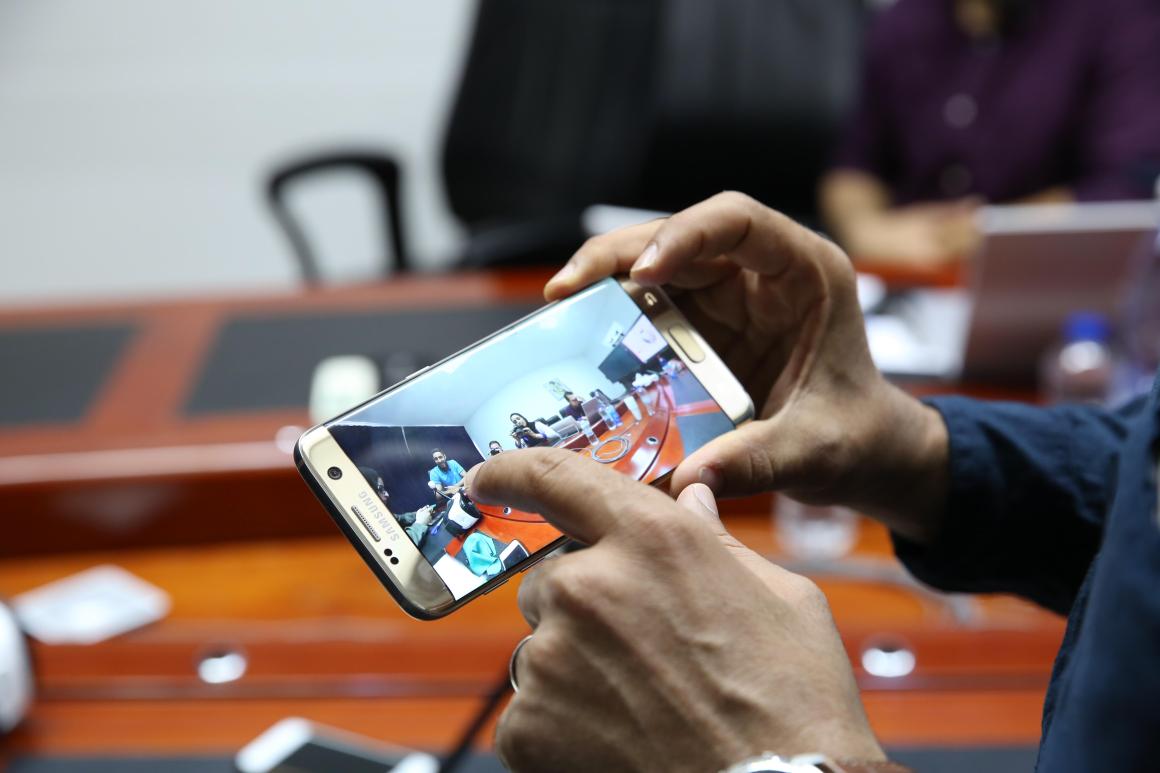 | 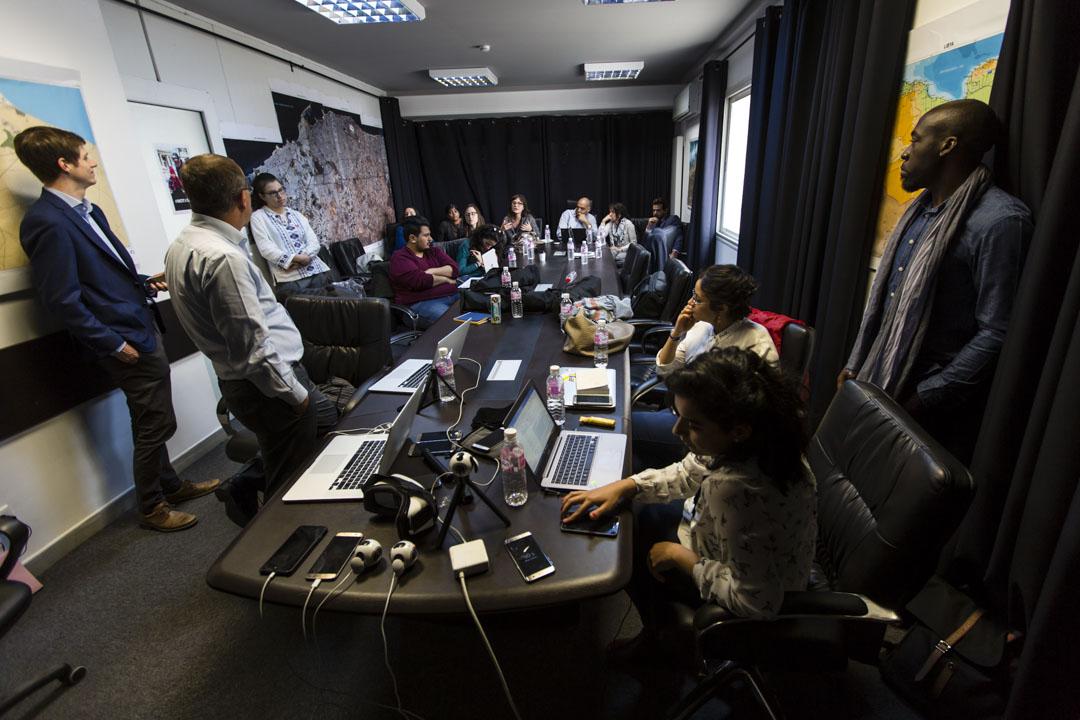 |
Virtual reality stimulates very strong senses of sight and sound, making the experience very realistic. And, as in the real world, what we perceive in VR corresponds to movement that is carried out.
With the support of the Office of the Resident Coordinator and Coordinator of Humanitarian Affairs, we organized the first virtual reality workshop for members of UN agencies in Libya. During three days, Gabo Arora of LightShed with Matthew Niederhausser and John Fitzgerald of Sensorium, trained seventeen communications officers in VR production techniques.
Virtual Reality constitutes a flourishing communications tool that has an enormous potential. With Facebook and Youtube adopting 360-degree content, VR productions reach a larger audience and, in particular, the youth segment of society.
A month later, we organized a new VR workshop for young Libyan artists. In Libya, youth represent 65% of the country’s population. Facebook still serves as their main source of information. We encouraged them to showcase their daily lives and the difficulties they are confronted with.
Now, armed with virtual reality gear, we assist them in creating productions that reflect their point of view. While waiting for the final productions, we are developing a parallel project with UN agencies on the ground.



